Élisabeth Gille
Élisabeth Gille (1937-1996) was a French author known most of all for biography of her mother, best-selling novelist Irène Némirovsky, murdered at Auschwitz. It was written borrowing Némirovsky’s voice, narrated in the first person as “dreamt memoirs.”
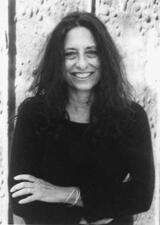
Carol Gilligan
The pioneering work of American psychologist Carol Gilligan changed the way the field of psychology studied women and, arguably, the way society views women. Challenging mainstream psychology through her interrogation of the accepted benchmarks of moral and personal development, she proposed that women and men have different moral criteria and follow different paths in maturation.
Blanche Gilman
A native New Yorker, Blanche Pearl Gilman contributed her energy and resources to a variety of religious, health, social, and activist organizations. Gilman devoted her career to bringing diverse groups together, from her interfaith work to her leadership in the Pro-Falasha (Ethiopian Jewry) Committee.
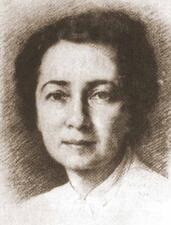
Rosa Ginossar
Rosa Ginossar’s determined lobbying of the British Authority in Palestine won women the right to practice law in Israel.
Ida Ginsburg
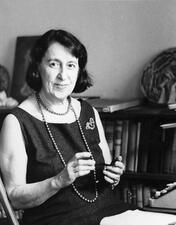
Mirra Ginsburg
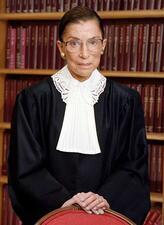
Ruth Bader Ginsburg
Ruth Bader Ginsburg is a unique figure in the history of American law, and indeed, of the twentieth-century women’s rights movement. The founder of the American Civil Liberties Union Women’s Rights Project in 1972, she was confirmed for the United States District Court for the District of Columbia in 1980 and became the first Jewish woman on the Supreme Court in 1993.
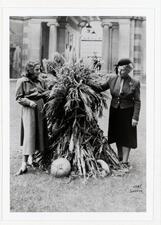
Adele Ginzberg
Known as “Mama G.” by generations of admirers, Adele Ginzberg was an influential figure in the Conservative Movement as wife of the famed Louis Ginzberg, professor of Talmud at the Jewish Theological Seminary, and was an active member of the National Women’s League of the United Synagogue. Ginzberg was a role model and inspiration to rabbinical students and women leaders and an early supporter of equal rights for women in synagogue rituals.
Natalia Ginzburg
Natalia Ginzburg was an Italian novelist, short story writer, essayist, and political activist. Ginzburg is considered one of the greatest Italian writers of the twentieth century, and her award-winning literary work is recognized for its exploration of family relationships and politics throughout fascism in modern Europe and during World War II.
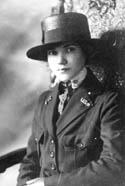
Ethel Gladstone
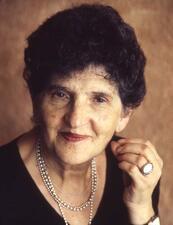
Margo Glantz
Margo Glantz is a Mexican-Jewish writer, journalist, literary critic, and academic. Born in Mexico City in 1930, Glantz demonstrates tremendous versatility as a writer and thinker who strongly identifies with Mexican, Jewish, Catholic, and indigenous practices and beliefs.

Elizabeth Glaser

Ilana Glazer
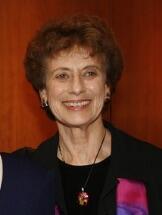
Penina Migdal Glazer
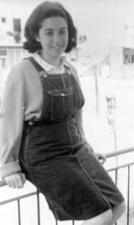
Miriam Cohen Glickman
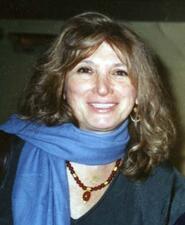
Nora Glickman
Argentine-born Nora Glickman is a prolific dramatist and short story and non-fiction writer, translator, editor, and professor of Latin American literature.
Gertrude Glogower
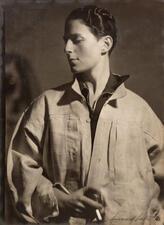
Gluck (b. Hannah Gluckstein)
A self-proclaimed individualist, Gluck painted outside abstract contemporary trends. Instead, Gluck naturalistically painted subjects reflecting her personal life and social circle, making her a unique character in the modern British art scene. Gluck was also proud of her queer, androgynous identity, which she infused into her artwork.
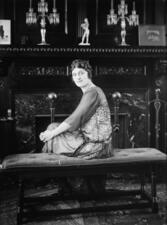
Alma Gluck
Alma Gluck began her career as an opera singer, but it was her love of American folk songs that made her a best-selling musical artist. She debuted at the Metropolitan Opera in 1909. By 1911, she had transitioned from opera to vocal recitals, and by 1914 she was the most popular concert singer in America. Gluck helped found the American Guild of Musical Artists.
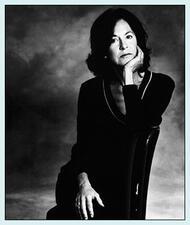
Louise Glück
Louise Glück, American poet, essayist, and educator, was the recipient of the 2020 Nobel Prize in Literature, as well as numerous other awards for her writing; she also served as poet laureate of the United States from 2003 to 2004. One finds the personal, the mythological, and the Biblical woven intricately throughout Glück’s oeuvre.
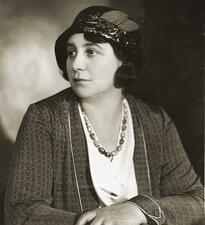
Katie Gluckmann
Eleanor Glueck
For half a century, Eleanor Glueck worked with her husband, a professor of criminology at Harvard Law School, to produce studies of juvenile delinquency and adult crime. In addition to statistical modeling of crime, they did follow-up studies to understand the roots of criminal behavior.
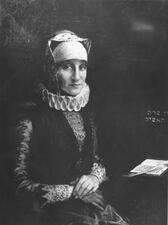
Glueckel of Hameln
Born into an affluent family in Hamburg, Glückel of Hameln became the business partner of her beloved first husband. She began writing memoirs in 1691, after her husband’s death. These memoirs are incredibly detailed, combining a meticulous record of her life and descriptions of events that occurred in local Jewish communities. Her memoirs are both a singularly important social and historical document and one of the greatest literary achievements of Ashkenazi prose–in Yiddish or Hebrew–at least until the end of the eighteenth century.
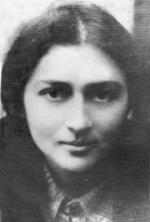
Mire Gola
A passionate idealist, Mire Gola organized anti-German resistance in World War II as a Communist in occupied Poland. She inspired others with her eloquent poetry and her fortitude through imprisonment and torture.
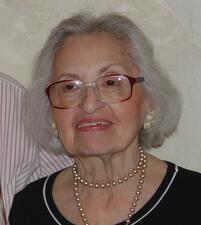
Doris Bauman Gold
Doris Bauman Gold was motivated by her long participation in Jewish organizational life to found Biblio Press, dedicated to educating Jewish women about their own history and accomplishments. Through Biblio Press, Gold published more than 27 general audience books that address and illuminate the culture, history, experiences, and spiritual yearnings of Jewish women.


